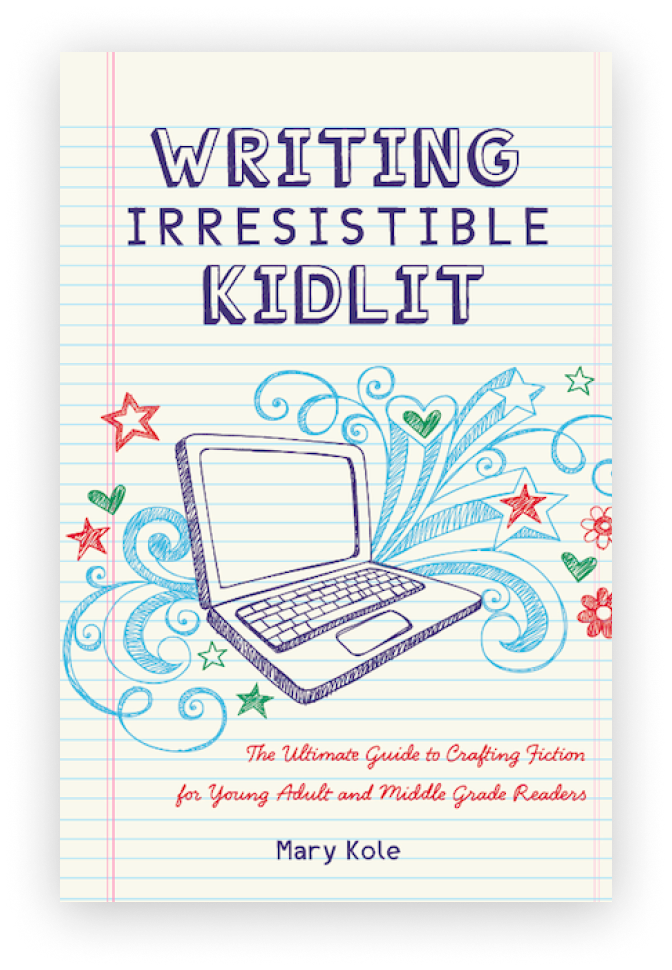The Importance of Book Editing
By Mary Kole
Mary Kole is a former literary agent, freelance editor, writing teacher, author of Writing Irresistible Kidlit, and IP developer for major publishers, with over a decade in the publishing industry.
This article is all about the importance of book editing. It includes a definition of the difference between editing and revision, and considerations for self-editing. If you’re in the process of revising your novel or are wondering about book editing, look no further.
WHAT IS THE DIFFERENCE BETWEEN book EDITING AND REVISING?
Many writers hear the terms “book editing” and “revision” and wonder whether they’re interchangeable. Are they different? Is one better than the other? Do you need to do one, or both, or neither if you want to publish a book project? What is the importance of book editing? Why does revision matter?
These are great questions. For our purposes, I like to define book editing as making systematic changes to a manuscript, which can be as simple as proofreading for grammar and punctuation, to as involved as overhauling an entire plot. The latter also gives you a hint at how I use the term “revision.” Consider the below:
“All revision is editing, but not all editing is revision.”
To clarify the definition of book editing, consider the different types of editing. Now, consider revision. When editors write a first draft of their manuscript, and then they go back into it for revision, they can either move commas around or they can commit to seeing the project with new eyes. The latter is revision. Literally, “re-vision,” or “seeing again.” Why is this distinction so crucial in understanding the importance of editing?
Well, writing is done in revision. You can see the following section for more, if you’re not convinced. If you are taking it easy on yourself in self-editing, if you aren’t looking at your manuscript on the whole, it’s possible you are not revising to your full potential.
Most manuscripts are not complete after a first draft. In fact, you probably have not fully grasped what your story really is yet. So revising lightly will shortchange you in the long run.
THE IMPORTANCE OF book EDITING AND REVISION
“The first draft is just you telling yourself the story.”
Book editing will always play a part in your writing and self-editing process, but revision is where manuscripts are made into published books. My biggest tip for true, transformative, big revision is this: Put your manuscript away. For three months. Do it. Seriously do it instead of thinking about doing it.
Here’s the reason: You are always working, as a writer, whether you’re at your word processor or not. Your creative brain keeps ticking. You know this because you’re often coming up with brilliant ideas in the shower or waking up in the middle of the night with brainstorms. You can’t rush that work.
So if you put your manuscript away for three months, your creative brain will keep writing on the back burner. You will, in turn, develop “new eyes” with which to do your “re-vision.” You will come back to the manuscript and see it in an entirely new light. And then you will be more able to take a step back, look at it objectively (a huge problem for almost every writer) and start playing around with the bigger elements of it, like character and plot.
Most writers who’ve just finished a manuscript are too close to it. They are reluctant to delete large sections or move big things around. They’re reluctant to admit that they have a muddy middle and that they need to start over.
But big changes are often at the heart of revision. And the sooner you can make some big changes in your manuscript, the better. You don’t want to fiddle with commas for three years only to realize, on draft twenty-seven, that your two main characters need to be combined into one. Ouch.
The importance of book editing is clear when you’ve had some time away from the project. (The trick of putting your manuscript away for three months also works wonders when you are on draft twenty-seven and can’t bear to look at the thing one more time. I always recommend that writers do this before they go on submission.)
When You’re Book Editing and You Stall Out
Unfortunately, there is a limit to self-editing. Try as they might, writers can never see their own manuscripts with the type of clarity that others can, even when they understand the importance of book editing. That’s why, in addition to putting the manuscript away and then taking big revision risks, I recommend getting actual other eyes (not just your own) on your project.
The first solution would be to get a critique group, critique partner, or beta reader. You could even join a writing workshop. But be warned. They are only as good as their level of experience. Everyone is great at having opinions. You want to make sure you’re soliciting worthwhile feedback that you’ll be able to trust.
The second solution would be to hire a freelance editor. These professionals work with story every day, and a good one will bring insider publishing industry experience to your project as well, so you’re not just getting craft advice ... you’re learning whether your idea has wings if you aspire to get published.
No matter what, whether you manufacture “fresh eyes” of your own, or enlist help, or both, you will want to go back to your draft for both book editing and revision. First drafts don’t get published. The sooner you learn to love the creative process of revision and the importance of book editing, the better off you’ll be for your entire writing life.

Click here to purchase Writing Irresistible Kidlit, my book on fiction craft for MG and YA novels, out from Writer's Digest Books. This will show you my writing craft philosophy and give you lots of valuable advice, including tips for the novel revision process and self-editing. There are over 35 example novels cited and discussed throughout. It’s a valuable resource for any writer’s toolkit.
Click here to purchase Successful Query Letters, my book on query letters, including over forty examples with comprehensive notes on each one. There’s a ton of submission advice, best practices, and insider information in these pages, and you’ll really enjoy seeing what other writers are doing in the slush.
“It genuinely feels like you’ve handed me a golden compass so I can trek off in the right direction now to ultimately find buried treasure. I’m so excited to not be wandering around aimlessly on this story any more. I can move forward on it now with confidence.”




